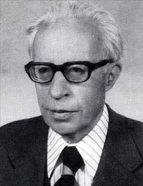

So, while he does not follow Spinoza (and rational pantheism) in recognizing some heteronymic source for logic, made outside itself, as an extrinsic limit, since liberty demands liberty (in the rereading of Hegel), Sílvio Lima clears the Kantian pathway to critical reason to achieve historical knowledge, rescuing it from finalist prisons and relativizing its evasive conclusions (Sílvio Lima, um místico da razão crítica (da incondicionalidade do amor intellectualis), 2009, pp. 285–86). Antero de Quental had taught him that Man and Nature participate in the ‘ontic community’. So the job of the historian and of historiographical knowledge, the knowledge of mediations, cannot avoid, against routine, the double theoretical construction of time and history, at peril of annulling itself. To the ignorant and arcane anthropological mythification of Nature, scientism can no longer counterpose the omniscient naturalization of the Human, by annihilating the qualitative historicity of Being. It would have to attempt responses.
g) A theory of time: in his polemic with J. de Carvalho about the psychological content of saudade (1955), against the master’s perspective, based on the originary and reproductive dualism (in Husserl’s terms), intense (intentional) and retrotense, of the phenomenon of saudade, Sílvio Lima, while confirming them adds a third term, protense, a projective moment that aims to overcome the negative aspect of saudade as present experience, and reintegrate it within the ontological limit of time (not in the past, not at all ontological, nor in the present, stricken by insufficiency or absence, but in the near future, a moment when the present already sees itself as future). In this way, protension indicates future temporality: R. Koselleck will speak of the horizon of expectations, a temporal topos in which, in part, heritage is weighed up and projected (Paul Ricœur would add) and so represent a utopic segment (an escape to the emotionally possible or perfectible non-place), by analogy with a ‘reconstruction of the unrepeatable’, sketched out in the last writings of Raul Proença. So this theoretical syntax of time reinscribes itself in the clear reading of Augustine’s Confessions (II and XI), grasping the triadic message of present-past, present-present, and present-future, and the dispute between heritages an expectations that existence generates and potentiates, as self-consciousness made present, i.e. that attempts to make present (re-present) the absent and the becoming. In this construction, two pivotal aspects are noted. First, it is the instance of history as discourse of memory/memories in the heraclitic and irreversible river of time, a reading that more remote theorizations (mainly P. Ricœur, 1983–85; 2000) clearly follow; second, the link in the exegesis that Eduardo Lourenço promotes in Labirinto da saudade (1978), based on Pascoais, advancing with his master Sílvio Lima’s own exertions in using the tension futurity/saudade as the particular language of the mythification process of the fatherland, point of departure for the imagology that he developed.
